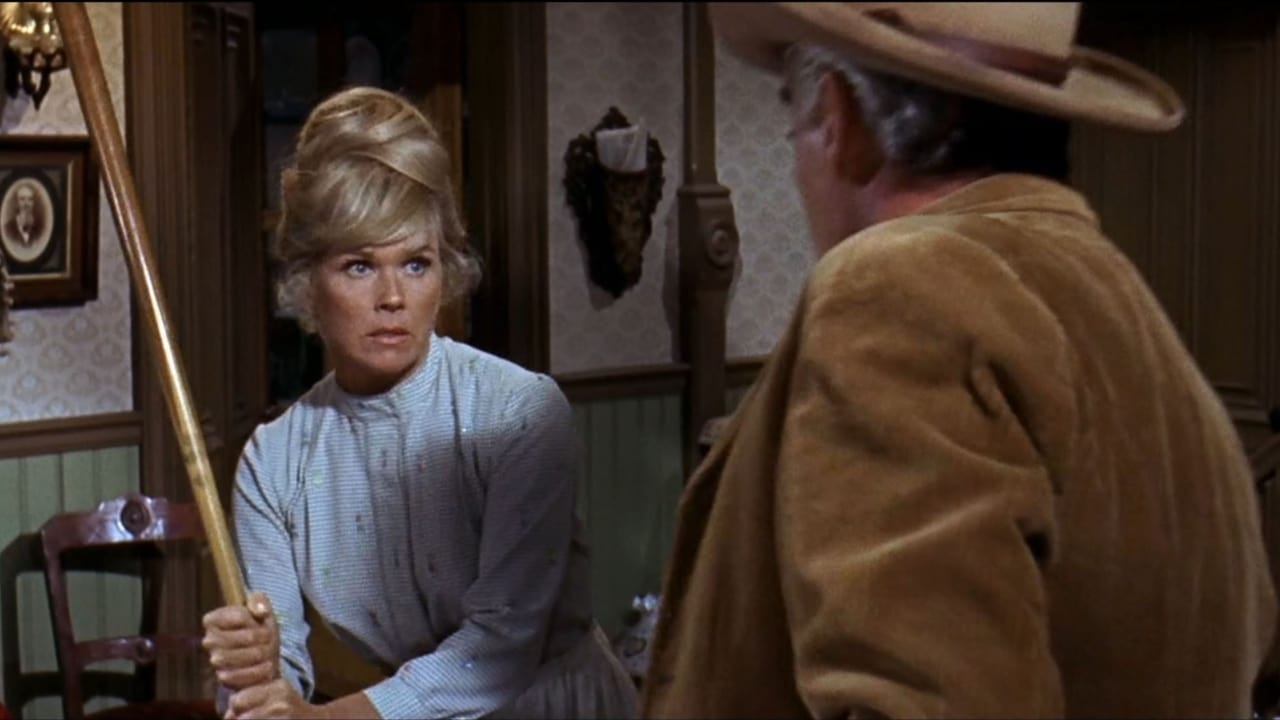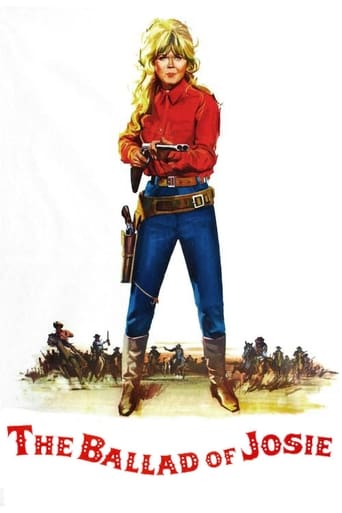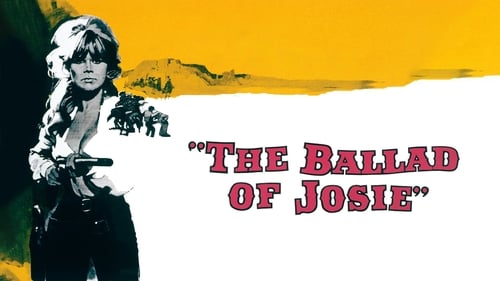




the leading man is my tpye
Good concept, poorly executed.
Disturbing yet enthralling
Through painfully honest and emotional moments, the movie becomes irresistibly relatable
View MoreThe main reason for seeing 'The Ballad of Josie' in the first place for me was Doris Day, having been of late on a completest quest seeing all the films of hers not yet seen.Despite being one of her lowest rated films here (along with 'Where Were You When the Lights Went Out?' and 'Caprice'), being one of her less well critically received films and being disliked by Day herself, 'The Ballad of Josie' isn't that bad. At least from respectful personal opinion, though it does have a good deal wrong with it and it was made during a rather rocky period of Day's film career. Of course it is among the weaker end of her overall films but it is better than 'Where Were You When the Lights Went Out?', 'Lucky Me', 'Starlift', 'The West Point Story' (aka 'Fine and Dandy') and 'Tunnel of Love', all but one of which rated higher.As is the case with all her films, even her lesser ones, Day is the reason to see the film in the first place and also the best thing about it. She does a very good job, having a balance of charm and feistiness. 'The Ballad of Josie' is a good-looking film too, not exactly evocative but full of rustic attractive colours and handsomely designed production values shot beautifully.Regarding the music, it is pretty excellent. It is cleverly orchestrated and rousing. The title song is a lovely and memorable one, though, despite Don Costa singing it well, there was a missed opportunity regarding Day not singing it. Was mixed on the supporting cast but felt that Elizabeth Fraser beguiled the screen whenever she appeared, Andy Devine clearly has fun and brought some much needed authenticity and John Fiedler is amusing.However, not all the supporting cast come off well, suffering from characters that are not particularly interesting or used well. Peter Graves has a bland uninteresting role and plays it just as much, while George Kennedy's character is underwritten and underused (although it is a kind of role that Kennedy is perfect for and he does his best with what he's given). Having Andrew V. McLaglen on board as director promised a lot, being a veteran of the western genre. The simplicity of the direction is to be admired, but too much of the time it was a case of getting the job done but it comes over as workmanlike.Sadly the story is often very dull, narratively it is as thin as a thin piece of tissue and in the more less than eventful parts the pace is sluggish. The script is tonally somewhat muddled, with some frequent and too often tiresome attempts at humour that never seems to fit and the more western-oriented parts lack grit. Despite looking good, 'The Ballad of Josie' never looks evocative with a lot of it looking too clean, too nice and too newly fresh.Overall, a long way from a disaster but Day did much better in her career and deserved better as well. 5/10 Bethany Cox
View MoreSYNOPSIS: Accused and then acquitted of killing her husband, Doris Day tries to run a sheep farm, much to the amusement and/or dismay of the locals.NOTES: Doris Day's fourth last movie. After this one she made Caprice (1967), Where Were You When the Lights Went Out? (1968) and With Six You Get Egg Roll (1968).COMMENT: Doris Day's first western since Calamity Jane (1953) isn't half as bad as most critics (including Doris herself) make out. It not only boasts bright color and sets, but our Day looks quite attractive. The support cast is worthwhile too, featuring wonderfully scatty performances by Andy Devine, William Talman, Paul Fix and John Fiedler (as a nervous storekeeper). One of the funniest touches is provided by the uncredited cafe proprietor whose eyes roll delightfully every time Miss Day moves from one accident to another in what is undoubtedly the film's best scene. A pity director Andrew V. McLaglen's control of the rest of the film is not as tight. George Kennedy is pretty well wasted, though he does figure in some exciting action highlights. Milton Krasner's color photography also impresses as a major asset. One big disappointment, however, is that Doris herself doesn't sing a note, the warbling chores being handled by The Sun Set Group and Ronnie Dante. DeVol's excellent score, with its astute combination of familiar folk airs, would seem to provide some excellent opportunities for vocalizing, but this doesn't happen. Ronnie Dante does an excellent job with the pleasant title tune, but this was no doubt added after the movie was completed, as the song is not used at all once the credits roll by.OTHER VIEWS: "Ballad of Josie" was nothing more than a second-rate television western. A terrible movie! —Doris Day.
View MoreVery entertaining blend of war between obstinate opponents in a stock-raising corner of Wyoming(WY), intertwined with a pioneer women's rights movement, and interspersed by periodic bouts of slapstick comedy, mostly involving star Doris Day. I'm very surprised that no one has commented on the very similar theme of this story to that of Doris's reported favorite film: "Calamity Jane", made about 15 years earlier. In fact, the even earlier "Anne Get Your Gun", which Doris so wanted to star in, also has the same theme. Of course, these two earlier films were musical romantic comedies, whereas the musical part is absent from the present film, except for a couple of background songs, including the title song. But, all 3 films involved a women in the Wild West or a Wild West show trying to show that she can be as tough or skilled as a man doing something(s) generally considered an exclusively male skill or occupation, trying to be an independent woman, while also wanting to be desired by the man of her choice.Calamity Jane eventually turns into contemporary Doris Day at the end. It's the same in this film, after a wild ride of Jose(Doris) trying to prove that, as a newly widowed townie, she can cut it as a sheep owner in cattle-only WY country, with only a couple of shepherds and sheep dogs as aids. Unfortunately, we never get to find out if this would have worked out well, because a 'posse' of cattlemen are determined to destroy her operation. Urbane Jason(Per Graves), who obviously has had the hots for Jose for some years, is caught in the middle, trying to dissuade Jose from sticking to her very unpopular dream, while helping to protect her and her flock from the intended depredations of the adversary cattlemen. We never learn what Jason does for a living, but he clearly has political skills, which are severely tested throughout this story,and is running for US senator for the new state of Wyoming in the finale scene. This story supposedly takes place in Arapahoe county, in the SE corner of Wyoming, around 1890, when the citizens of WY are applying for statehood. Well, there never was an Arapahoe county here, But, due south, in north central Colorado(CO), there was(and still is) an Arapahoe county, which at that time included Denver. Historically, most of the sheep-cattle wars in this region involved northern CO cattlemen attacking sheepmen in or from neighboring WY.However, the screenwriters wanted to include the issue of women's civil rights in the story. Thus, they wanted to site the story in WY since, historically, that's where women first acquired voting and some other civil rights within the US. Although it is briefly alluded to in the film(by DA Charlie Ward and Jose), you may not have caught the complicated situation regarding women's civil rights at this time. WY territory women had been granted voting and certain other civil rights in 1869: the first in the US, after a minimal campaign. When this story takes place, the US Congress is strongly opposed to approving a proposed WY state constitution which includes the civil liberties women enjoyed under the territorial government(historically true). That's what the fuss is about, with the cattlemen's opposition to Jose's legal right to choose to raise sheep being transformed into a political battle between the sexes. But, that's not what Jose wants! She just wants to be left alone to pursue her dream. Unfortunately, that's not to be, as the men, including Jason, finally convince her to change her dream. She decides her revolutionary sheepwoman dreams aren't worth people killing each other, barns being burned, and WY territory being rejected for statehood. She also confides in her pet skunk that too much independence and daring tends to make a miserable life for a woman.(Incidentally, Congress finally gave in and allowed WY state women to vote).Doris may have been in her early 40s when she made this film, but she was just as spunky, funny and adorable as she was 15 years earlier in the making of "Calamity Jane". I don't understand why she likes the earlier film, but not this one. Maybe she didn't like the then unfashionable message in the unexpected ending? No matter, she still gives it her all.Like Errol Flynn, in "Montana", Jose herds her sheep through the town's main street to clearly announce her unpopular intentions to all. However, unlike Jose, Flynn succeeds in keeping his flock and convincing some cattlemen to include sheep, despite the vigorous opposition of a cattle queen. The men(man) win the war of persistence against a woman in both films!Why didn't Jose defend herself against the accusation that she deliberately pushed her chronically unemployed drunk abusive husband down the stairs to his death? Did women have the right to testify in court on their behalf then?George Kennedy(as Arch) is good as the leader of the opposition to Jose's sheep flock, as well as the most vocal opponent to women's civil rights. Andy Devine tries to be an impartial judge, and William Telman makes an often sympathetic forceful DA(and seemingly acts like the territorial governor). Timothy Scott, as one of Jose's shepherds, does a great impression of a sympathetic southern hillbilly. The other character actors and actresses generally were also good.
View MoreToday I have seen again this kind of a western comedy after several years. Now, after watching much more bad movies like this, I found this star-vehicle not funny. Sooner embarrassing, for example the scene when Miss Day is disturbing a meeting of the cattlemen. She comes in and drinks two brandy to demonstrate that she is hardboiled like George Kennedy. Or Peter Graves, off course. Oh boy, after five minutes she is completely drunken, just by two glasses of liquor. So we see, and Doris too: It's a man's world, and women have to respect men's opinion, shut up, wear skirts and kiss at last a big strong, guy like Peter Graves. Long winded, unfunny, boring, without any surprising scenes or comical dialogues: director Andrew V. McLaglen put on better movies, for example "McLintock!" or the great and outstanding pacifistic civil-war-western "Shenandoah". Don't waste your time!
View More